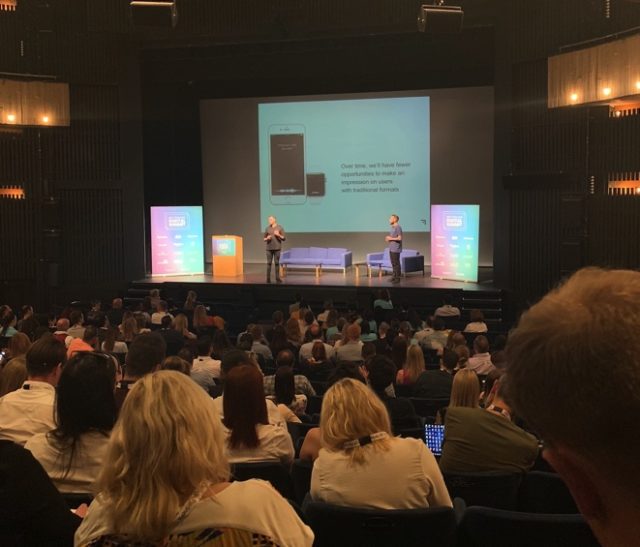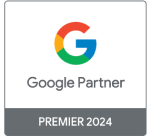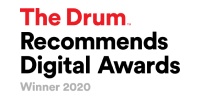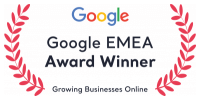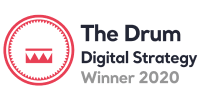Google announced last week for the first time that they will be starting to take “page experience” into account as an official ranking factor in 2021.
UX metrics have arguably been used in one way or another by Google to assess the quality of the websites they serve to users for a few years already, with claims that pogo sticking, dwell time and the length of time users spend browsing documents (web pages) referenced in Google patents stating their intent to use such factors to improve the way pages are ranked in their search results.
Indeed, the blend of UX metrics and SEO factors is a topic I’ve spoken about in the past and listed as one of the key trends to watch in 2020. it’s a connection that makes perfect sense – if Google have access to data that can be used to assess page quality, why the heck wouldn’t they use the data to serve better results to user queries?
Q: Do you believe queries+clicks, user engagement, pogo-sticking, etc are used in Google's ranking systems?
— Rand Fishkin (@randfish) February 8, 2019
In this most recent update, Google have explained that they will start combining features derived from their core web vitals with existing signals including mobile-friendliness, safe-browsing, HTTPS-security, and intrusive interstitial guidelines, to provide a holistic picture of page experience.
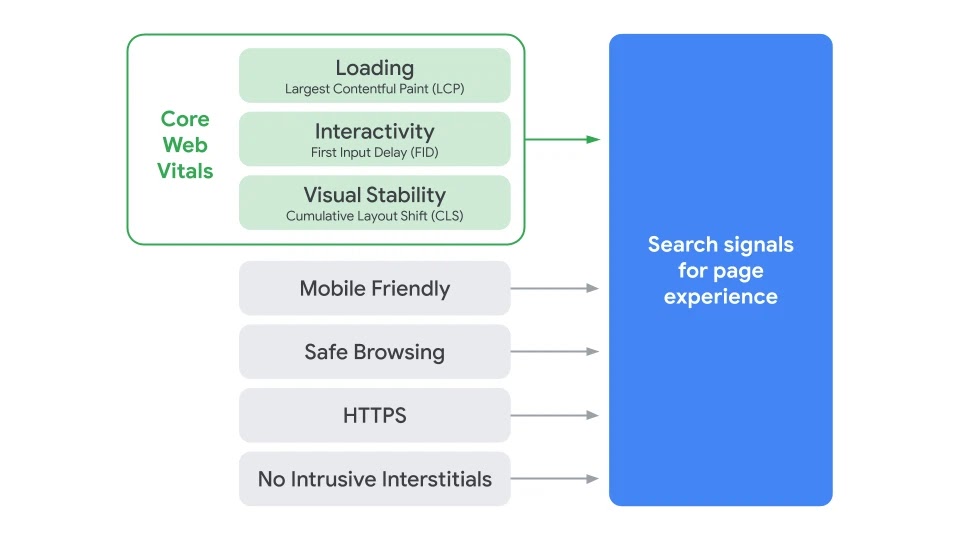
We are now working in an era dominated by machine learning, with Google getting smarter than ever at interpreting user experience metrics, search intent, processing complex queries, and with ranking signals becoming evermore opaque.
To keep pace with these changes, SEO’s need now more than ever to evolve from one man optimisers to strategic consultants, orchestrating multidisciplinary teams to achieve organic performance improvements.
Moving from optimiser to orchestrator
John Mueller of Google was asked a few months back “I’d like to become the greatest SEO ever, what would you advise me to study?”
John responded “There are so many interesting facets of what SEO’s do, I’d recommend trying out different areas to find one those you’re passionate about.” He then listed off some examples of areas to focus:
- Marketing
- Python
- Writing
- HTML
- JavaScript
- Usability
- PR
- Design
- User Experience
While it’s true that individuals can and should develop a solid understanding of each of these areas, it’s impossible for an individual to do all of these things at an expert level on their own.
We’re already seeing many aspects of SEO able to be automated and with ranking factors becoming ever more opaque, SEO will become less of an ‘all-rounder’ type career which it once was, and more of a skill that is covered by a combination of marketing, product management, UX, PR, content, and front end development.
To truly succeed at SEO, you must be able to develop and coordinate people with deep expertise in all of these areas. This means breaking down traditional silos between disciplinary teams and bringing individuals with complementary skill sets together to achieve a common goal.
Integrating your approach to search
With the rise of zero-click search, complexities such as browser privacy (ITP/ETP) skewing analytics data and platforms previously reserved for PPC (Google Shopping) now being opened up to free organic listings, a strategic, integrated approach across organic and paid search is essential to navigate an increasingly complex search landscape.
Individual activities such as PPC or SEO in isolation will never give the best results – the future of search marketing is in a truly integrated, unified approach where all the component parts of a complex ecosystem are balanced to suit the specific marketing goals and objectives of each business.
As an example, by working with their PPC counterparts SEO’s have an opportunity to share learnings, eliminate budget inefficiency and help drive mutual growth for their clients.
Very rarely does this actually happen. All too often SEO twitter is awash with rants about PPC, take for instance this debate a few months back about brand bidding and the knock-on impact on organic brand visibility.

The fact of the matter is that aggressive tribalism between SEO and PPC practitioners is borne out of ignorance of the value of each discipline.
Building a deep understanding of how SEO and PPC can work together to achieve mutually beneficial results is essential in breaking through the noise in an era dominated by an ever expanding raft of advertising space and ever more opaque SEO ranking factors.
To continue with the Basecamp example above, brand ads can actually be more effective than organic results. Most companies bid on brand keywords to defend against competitor ads, but it also allows brands to control creative messaging and landing pages for every search term. For integrated search marketers, bidding on brand terms is in most cases a no-brainer.
Strategic data sharing across organic and paid search
Here at Hallam, we use a combination of first and third party data to build integrated dashboards displaying key search (SEO and PPC) performance data.
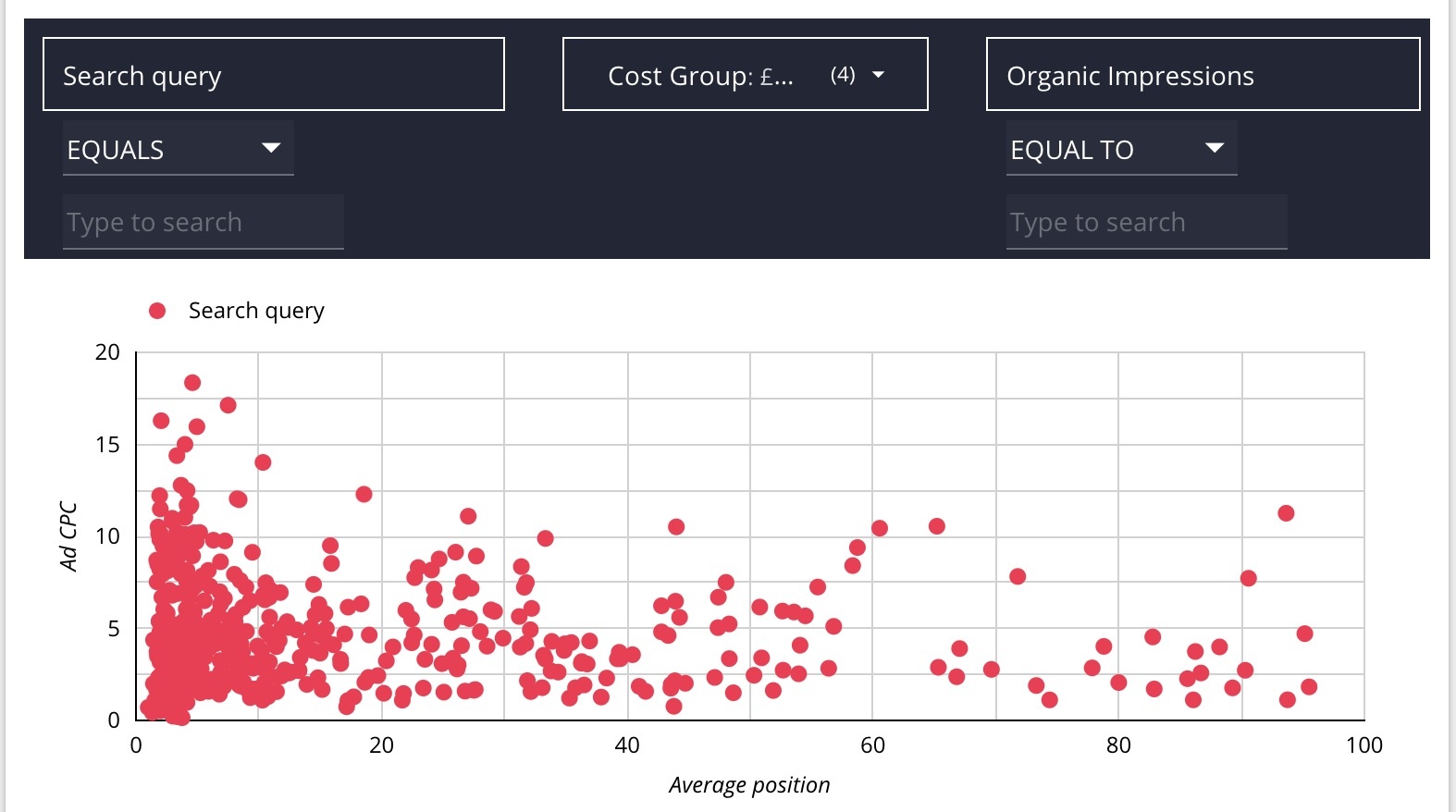
These dashboards are able to pull in data from various sources to answer questions such as:
-
- Which PPC keywords am I bidding on that I’m dominating organic results with no paid competition? In other words, where can I start to save budget?
- Which paid keywords are generating the most profit, and where are we ranking for those terms organically? In other words, which pages should I be creating to generate more profit through SEO?
- What’s our organic CTR vs. paid CTR for our most profitable keywords? In other words, which page titles and descriptions can we tweak to boost organic CTR?
Of course, this is only one example of a unified approach to search, there are of course other factors that play a part and all should be considered to truly make a long term performance impact.
Time to do things differently
The search landscape is exponentially more complex and nuanced than ever before, and the way we get the most of it continues to evolve.
There have been some questionable articles written over the past few months in light of the evolution of Google’s algorithms about the future of SEO agencies and practitioners, and while it’s true that search is evolving at a rapid pace it certainly doesn’t mean there’s no future for SEO as an activity.
SEO is in many cases crucial to most businesses online performance, for the majority of our clients it is the number one online revenue driver, so it would be ludicrous to think that focusing on improving a businesses standing in search would be a pointless undertaking.
“SEO is snake oil” is a non-argument. It is an avoidance of responsibility, a lazy escape clause to avoid having to do any real thinking, and an easy blame game.
SEO is crucial to most businesses’ online success. Calling it bad names won’t make that any less true.
— Barry Adams 📰 (@badams) May 28, 2020
The foundational elements of SEO are still as important as ever, but are the days of the “one man SEO machine” over? Definitely. Modern SEO’s have already evolved from hands-on optimisers to strategic consultants, orchestrating teams to generate more impactful results.
Agencies too must evolve beyond the traditional “SEO team”, and instead focus on SEO as a product, which should involve people from any number of teams to add to the huge set of skill requirements needed to succeed in Google’s evermore complex organic landscape.
Have you found this article useful?
Get Team Hallam's expert advice and guidance straight to your inbox once a week.


